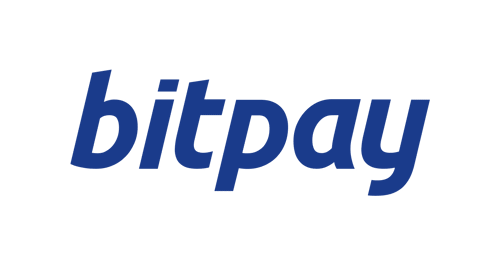Donating with crypto couldn't be easier. Crisis is using BitPay to now receive donations from cryptocurrencies such as Bitcoin. Once you have submitted the form below, a Crisis representative will be in touch (within 24 hours) via email for you to complete your crypto donation using BitPay.
If you are a first-time user of BitPay, you will be asked to create an account. Donated with BitPay before? You will need to login to your account.

Donate to Crisis using Bitcoin or other cryptocurrencies straight from your wallet.

Use the form below to get started with your donation.
Crisis will email you with a link to continue your donation.
Simply complete the transaction, emailed to you, like you would any other method of payment.
Yes, Crisis accepts Bitcoin, Bitcoin Cash, Ethereum and 11 other cryptos for donations. Donations exceeding $250,000 (USD) are not accepted at this time.
If you wish to donate to Crisis with Bitcoin, Bitcoin Cash, Ethereum, or 11 other cryptos, after completing the form on this page, you will be invited to select the cryptocurrency to be used for your donation.
The exchange rate for donations paid by Bitcoin, Bitcoin Cash, Ethereum, or 11 other cryptos, will be provided by BitPay at the time of your donation. Find the current exchange rate here.
Donating Bitcoin or another cryptocurrency to Crisis is easy with BitPay. Use the form above to get started with your donation. Then simply complete the transaction, emailed to you, like you would any other method of payment.
We kindly accept donations in the following cryptocurrencies:
Note: BitPay only accepts ERC-20 coins on the ETH network. For more information on BitPay’s accepted payment currencies, please see Which wallets work best for a BitPay Payment?
BitPay is a US-based company that complies with all mandated federal and local regulations. US companies are prohibited from engaging economically or by trade with persons or businesses based in countries that are under trade and economic sanctions set forth by the US Department of Treasury's Office of Foreign Asset Control (OFAC). You can view an updated list of OFAC sanctions on the OFAC site. BitPay also complies with the sanctions programs of the United Kingdom and the European Union.
Prohibited Countries/Territories: BitPay does not service merchants or users residing in certain countries and territories, based on specific criteria and applicable laws and regulations. BitPay routinely reviews its products, offerings, countries, and regulations and makes updates to its prohibited countries list as appropriate. Currently, the following countries/territories are prohibited by BitPay: Algeria, Bangladesh, Bolivia, Cambodia, Ecuador, Egypt, Indonesia, Iraq, Kyrgyzstan, Macedonia, Morocco, Nepal, Pakistan, Palestinian Territory, Turkey, and Vietnam.
BitPay has relationships with many Bitcoin exchanges around the world, but they only utilise exchanges which meet their operational and regulatory requirements. When calculating their exchange rates for BitPay donations, they only incorporate rates of Bitcoin exchanges which meet their regulatory, operational, and market depth requirements.
To calculate the exchange rate for US Dollars, they typically pull the market depth from an exchange with adequate liquidity and reliable withdrawal capabilities in the USA and Eurozone. They factor "slippage" into their exchange rates, which means that the larger the value of the donation, the lower the exchange rate. Slippage is usually only noticeable on very large donations.
They set exchange rates for non-USD currencies indirectly using the Open Exchange Rates API. In the future, as Bitcoin markets in non-USD currencies mature, BitPay will use those markets directly.
For their current rates, please visit the following link: BitPay: Buy Crypto Without Fees | Store, Swap & Spend Bitcoin
Bitcoin is a type of digital currency, commonly known as cryptocurrency. There are many different cryptocurrencies, including Bitcoin, Bitcoin Cash, Ethereum, etc. There are also some cryptocurrencies, like GUSD and USDC, that are “pegged” to the value of certain fiat currencies, like USD.
Bitcoin and other cryptocurrencies are digital cash for the internet. With cryptocurrency, you can send money over the internet directly and securely to another person, without needing a credit card or bank, for the first time. Instead of the credit card company or bank, thousands of networked computers process Bitcoin transactions and verify that they are legitimate.
You can download software called wallets on your smartphone or computer that store your Bitcoin and work with the Bitcoin network to let you send and receive payments without the risk of fraud and chargebacks. You own your Bitcoin by keeping track of a private key. It's a digital signature that no one can forge or fake. Because you're the only one who owns this signature, there is no reset or recovery without your private key. You have total control and total responsibility.
There are several wallets which are compatible with BitPay’s donations. Which wallets work for a BitPay invoice?
However, BitPay invoices are unable to support MetaMask in Firefox at this time. This is due to how MetaMask is implemented in Firefox, combined with browser Content Security Policy blocking inline javascript. BitPay are exploring alternative solutions to allow compatibility. However, their current recommendation is to use MetaMask in Chrome when paying a BitPay invoice.
If you accidentally sent Bitcoins to a Bitcoin address owned by BitPay, Inc. and associated with an expired BitPay donation (payment to Crisis), BitPay will be happy to assist with refunding your Bitcoins back to you.
Submit a request with the following information to locate your Bitcoins:
If your donation was made to one of BitPay’s owned addresses, BitPay should be able to locate it with this information and will they proceed with refunding it to your Bitcoin refund address.
NOTE: BitPay does not control or have access to funds in BitPay or Copay wallet apps. BitPay cannot reverse or refund transactions sent to or between these addresses.
The reason you are getting this error is because you do not have a cryptocurrency wallet installed on your computer or mobile device. If you do not have a cryptocurrency wallet installed, your device/computer will not know how to handle the link behind the Pay In Wallet button.
To complete the payment, you can scan the QR code using a mobile wallet or use the copy button on the invoice and then paste the payment details into your wallet. View BitPay's support article on the ways to pay an invoice.
For assistance with choosing a wallet to install on your device, please view the following help article.
For security and fraud prevention reasons, BitPay require six block confirmations on the BTC, BCH, and DOGE blockchains before funds are credited to Crisis.
ETH and ERC20 tokens (such as USD stable coins) require 50 blocks of confirmation for completion.
Block confirmation times are determined by the network, not by BitPay. One confirmation may take as little time as several seconds to as much time as a few days, but most transactions receive the necessary confirmations within an hour if they have an appropriate fee attached.
If you would like to increase the likelihood of a timely confirmation, be sure to include a sufficient fee from your wallet. You can do this in the BitPay wallet by selecting the “Priority” fee option in your wallet’s settings under “Bitcoin Network Fee Policy.”
When a BitPay invoice is generated, it is only valid for 15 minutes to protect against the volatility of the cryptocurrency paying the invoice. During the 15 minute invoice window, the rate of the specific cryptocurrency is locked and guaranteed. After the invoice expires (after 15 minutes), it is necessary to generate a new BitPay invoice to try and pay again.
When a BitPay invoice is created, it is only valid for 15 minutes. If the invoice expires, you will have to return to our website in order to submit your payment.
After the invoice window has expired, you will see the return button at the bottom of the page. Click return to be redirected to Crisis’ website to generate a new invoice.
Alternatively, you can go to Crisis’ website and complete your transaction by creating a new order and selecting donate with BitPay again to generate a new invoice.
If you have trouble paying an invoice, please see our article on how to pay a BitPay invoice.
If you tried to pay for the invoice and the transaction was not accepted by the Bitcoin network, the funds will be spendable again in your wallet. Depending on your wallet, this may take 48-72 hours.
If you sent a donation to a BitPay invoice and haven't received your service, it's possible that the invoice expired or that the amount sent did not fully pay the invoice. If you mistakenly sent funds to Crisis' address after the invoice payment window has expired, BitPay will be happy to review the BitPay invoice with some information from you.
Submit a request with as much of the following information as you can provide. This will help BitPay locate your payment.
BitPay Invoice ID: the part after http://bitpay.com/invoice?id=
Bitcoin Transaction ID, Bitcoin Cash Transaction ID, or Ethereum Transaction Hash: usually located in your wallet transaction history. For Bitcoin and Bitcoin Cash, it is a set of 64 hexadecimal characters (0-9 & a-f). For Ether, it is a set of 66 hexadecimal characters starting with 0x e.g. 9f94d278a92b10e9abac033ffaf327a852c803da63bd2b9440bf6440e8bc1428 for Bitcoin and Bitcoin Cash, or 0x3d68360b9810970c501a0c6e31be9a29ac38050b61ee275c4a79b27ac100187c for Ethereum.
Bitcoin address: 34 characters with upper case letters, lower case letters, and numbers. It will start with a 1 or a 3 e.g. 19hw6hdT1rv16abN89kJB4q6m83usjJDdz
Bitcoin Cash Address: A set of characters which begins with bitcoincash: followed by a long series of letters and numbers e.g. bitcoincash:pqkh9ahfj069qv8l6eysyufazpe4fdjq3u4hna323v
Scroll to the bottom of the invoice page and select "English." A menu will pop up with the list of the language translations available for the BitPay invoice.
BitPay can directly refund your donation if you have an underpaid invoice or if the invoice expired before the payment was made to the payment address.
If the invoice is overpaid, BitPay can refund only the overpaid amount unless Crisis authorises a full refund.
If the invoice is fully paid, BitPay requires Crisis' authorisation to issue a refund.
Once a refund request has been submitted, please allow 1-2 working days for the refund to be processed.
For security and fraud prevention reasons, BitPay requires donors receiving refunds of any amount to sign up for the personal dashboard. This does not require providing identity verification information beyond an email address.
Typically, Payments ≥ 3000 USD or refunds ≥ 1000 USD require users to provide additional verification by obtaining a BitPay ID. Please note that verification requirements may differ by region. Some regions may require donor sign up for BitPay ID for a purchase of any value depending on local laws and regulations.
This will take you through a quick process of providing identity verification information such as:
If you have already completed the verification process, all you need to do is sign into your BitPay account.
For more information and what documents are accepted, please refer to What is BitPay ID verification? What documents are accepted?